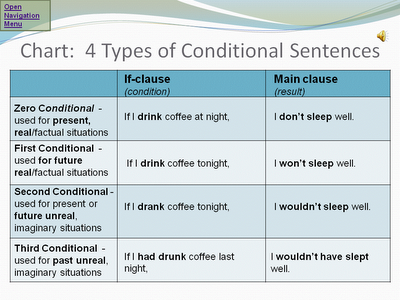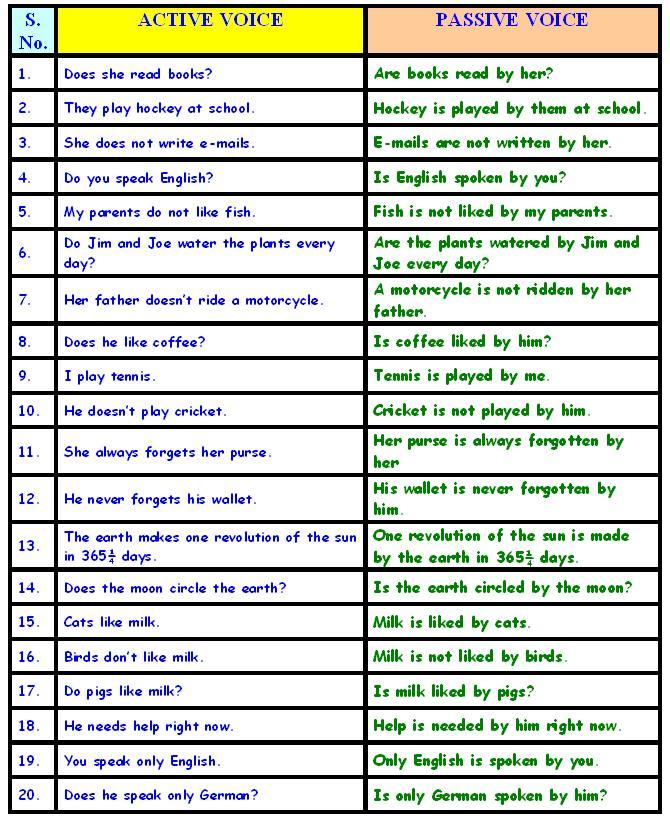We use conditional to show a possible situation based on another situation. Types:
- ZERO CONDITIONAL: If+ present simple, present simple
- FIRST CONDITIONAL: If+present simple, will+infinitive
- SECOND CONDITIONAL: If+past simple, would+infinitive
- THIRD CONDITIONAL: If+past perfect, would have+past participle

http://www.myenglishpages.com/site_php_files/grammar-exercise-conditionals.php#.UzR-JaOCHJs
http://www.englishpage.com/conditional/conditional10.htm
MODAL VERBS
We use modal verbs to show if we believe something is certain, probable or possible (or not). We also use modals to do things like talking about ability, asking permission, making requests and offers, and so on.
Activities:
http://www.englishdaily626.com/modals.php?001
http://www.ihbristol.com/free-english-exercises/test/esol-smc-modal-verbs
PASSIVE VOICE
We'll talk this time about a grammatical resource of great importance in the English language: the passive voice. To establish the difference start with the language we use regularly called active voice in which the action of the verb is on the subject while in the passive voice of the verb action is on the object. See the following examples:

REPORTED SPEECH
When do we use reported speech?
Sometimes someone says a sentence, for example "I'm going to the cinema tonight". Later, maybe we want to tell someone else what the first person said.
http://www.englishpage.com/conditional/conditional10.htm
MODAL VERBS
We use modal verbs to show if we believe something is certain, probable or possible (or not). We also use modals to do things like talking about ability, asking permission, making requests and offers, and so on.
Activities:
http://www.englishdaily626.com/modals.php?001
http://www.ihbristol.com/free-english-exercises/test/esol-smc-modal-verbs
PASSIVE VOICE
We'll talk this time about a grammatical resource of great importance in the English language: the passive voice. To establish the difference start with the language we use regularly called active voice in which the action of the verb is on the subject while in the passive voice of the verb action is on the object. See the following examples:
REPORTED SPEECH
When do we use reported speech?
Sometimes someone says a sentence, for example "I'm going to the cinema tonight". Later, maybe we want to tell someone else what the first person said.
We use a 'reporting verb' like 'say' or 'tell'. If this verb is in the present tense, it's easy. We just put 'she says' and then the sentence:
- Direct speech: “I like ice cream”.
- Reported speech: She says she likes ice cream.
But, if the reporting verb is in the past tense, then usually we change the tenses in the reported speech:
- Direct speech: “I like ice cream”.
- Reported speech: She said she liked ice cream.
https://www.youtube.com/watch?feature=player_embedded&v=quXqD18XA2Q
https://i1.ytimg.com/vi/lu-TZa-ZpGs/mqdefault.jpg

No hay comentarios:
Publicar un comentario